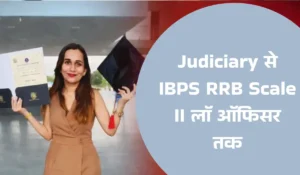Directions (1-5): Read the following passage and answer the questions as directed.
Artificial intelligence (AI) is all the rage these days. A recent article noted that ‘robots’ — shorthand for AI in the tabloids — will be able to write a fiction bestseller within 50 years. I suppose that would be shocking to me as a novelist if most fiction bestsellers were not already being written by ‘robots’. Or so one feels, keeping publishing and other vogues in mind: a bit of this, a bit of that, a dash of something else, and voila you have a bestseller! In that sense, perhaps the rise of AI will make us reconsider what we mean by human intelligence. This discussion has been neglected for far too long. Take my field: literature. The Chinese company, Cheers Publishing, lately offered a collection of poems written by a computer program. So, are poets, generally considered to be suicidal in any case, jumping off the cliffs in droves as a consequence? Well, this is a selection from one of the AI poems I found online: “The rain is blowing through the sea / A bird in the sky / A night of light and calm / Sunlight / Now in the sky / Cool heart / The savage north wind / When I found a new world.”
Yes, there are aspiring poets — and sometimes established ones — who write like this, connecting words centripetally or centrifugally to create an effect. I think they should have been pushed off literary cliffs a long time ago. Because this is not poetry; this is just the technique of assembling words like poetry. There is a difference between the intelligence required to write poetry and the skills required to write it. That poetic intelligence is lost without the required poetic skills, but the skills on their own do not (A)suffice either. The fact that lines like this, written by AI, can be considered poetry does not reflect on the intelligence of AI. It reflects on the intelligence of those readers, writers, critics, editors, publishers and academics who have not yet distinguished between gimmickry and mimicry on the one side and the actual freshness of a chiselled line on the other. But this is a small example. Surely, AI might also make (B) …………………………………………………………, including that of considering something like IQ to be a sufficient index of human mental capacity! Because if we think that AI can replace human intelligence, then we are simply not thinking hard enough.
(C)One of the major (1) activity here is that of considering (2) intelligence to be something (3) different from and raised above the (4) failures of living. This leads to the misconception that intelligence can be (D)……….. to something else — say, a robot — without becoming something else. Human intelligence cannot be passed on to something else: What is “passed on” is always a different kind of ‘intelligence’. Even the arguments that AI — or, as in the past, robots — can enable human beings to lead a gloriously workless existence is based on a similar misconception. Because human intelligence is embedded in human existence, ‘work’ as human activity in the world is not something human beings can do without.
Q1. Which of the following words can replace the word given in bold in (A) without changing the meaning of the sentence?
(a) disperse
(b) squander
(c) dissipate
(d) serve
(e) spread
Click here to Buy IBPS RRB Mains 2020 Study Material
Q2. Out of the following options which option does support the statement “There is a difference between the intelligence required to write poetry and the skills required to write it,” made by the author in the paragraph?
(a) There are aspiring poets who write like this, connecting words centripetally or centrifugally to create an effect, this is not poetry; this is just the technique of assembling words like poetry.
(b) that would be shocking to me as a novelist if most fiction bestsellers were not already being written by ‘robots.’
(c) The lines written by AI considered as poetry does not reflect on the intelligence of AI.
(d) Both (b) and (c)
(e) None of the above
Q3. Which of the following phrases should fill the blank given in (B) to make it grammatically and contextually correct and meaningful?
(a) has always been a mistake to expect him to ‘solve’ problems without human effort
(b) us discover our basic lack of intelligence in other areas
(c) often atheistic fans of AI who believe that it is ‘The solution’ are making the same mistake
(d) has had a crucial role in shaping cognitive capacity and brain evolution
(e) None of the Above
Q4. The sentence given in (C) has four words given in bold. Amongst given bolded words, which of the followings must replace each other to make the sentence contextually correct and meaningful.
(a) 2-4
(b) 2-3
(c) 1-4
(d) 3-4
(e) 1-3
Q5. Which of the following words given in the options should come at the place marked as ‘D’ in the above paragraph to make it grammatically and contextually meaningful and correct? Also, the word should fill the two sentences given below to make them contextually correct and meaningful?
(i) They aim to prevent women from being ……………… to a secondary role.
(ii) United were ………………….. to division two.
(a) forecasted
(b) relegated
(c) researched
(d) published
(e) vanished
Practice for IBPS RRB Mains 2020 Exam with the latest study material:
- IBPS RRB Online Test Series for Mains (with solutions) Bilingual RRB Office Assistant Mock Test
-
IBPS RRB Officer Scale-1 Mock Tests 2020 | Bilingual Test Series by Adda247
Directions (6-10): Read the following passage and answer the questions as directed.
We expect individuals (I) to take charge of their lives, to assume responsibility for their decisions. But when individuals group together, a problem arises. Groups can’t take charge of themselves, nor can every member simultaneously take charge of the entire group. Someone from the group is invariably asked to show the way, to become the primary agent, to lead. Yet, not everyone who occupies high office is a leader. A person who merely (II) or has management skills is not a leader. Moreover, not everyone who assumes the role of a leader is able to play it well. What qualities then make for a leader? Which (A)virtues are required to provide ethical leadership? I suppose there is little new (III). But let me still give it a shot in the hope that it serves as a good reminder. And in the election year, why not focus on qualities necessary for political leadership?
If a person is chosen to lead the group, it is her responsibility to take care of the interest of each person of the entire group. This often (B)…………….. putting collective interest before her own interest or that of her preferred group. For this to happen, she must first be able to identify the common good, to have a grasp of what is acceptable to all, to have an inclusive vision. This requires an infinite capacity to listen to others, to learn from them, to have the intellectual ability to critically examine and evaluate what everyone wants and needs, and then put them all together. Since this intellectual formulation can only be the first step, an estimate of the real quality of a decision is not known until it is implemented; ………………….(C)……………………………..This requires him to keep his ear to the ground, listen patiently to criticism to judge if his policies are working. He must not be defensive when criticised, or evade uncomfortable questions, but face criticism head on and be able to sift the wheat from the chaff. It also necessitates that a leader show flexibility and an ability for course correction by admitting mistakes. He should know that one’s stature is not diminished by accepting fallibility. A leader must be a good communicator, and that is greatly helped if he has a way with words. But all the rhetorical flourish is of no avail if the speech lacks sincerity and conviction. Finally, a good leader knows that nothing can be achieved without the collective expertise and wisdom of a support team.
It is equally tempting to pick those one has taken a fancy to, who are personally loyal. But such people often lack spine. (D)Fearful people with poor ability can never offer good advice to their leader and could allow bad decisions to prevail that push the country down a ruinous path. Besides, they are often among the first to backstab the leader once out of power. Thus, personal likes and dislikes too must be set aside.
Q6. Which of the following words can replace the word given in bold in (A) without changing the meaning of the sentence?
(a) gentry
(b) Fortes
(c) rage
(d)tantrum
(e)rampage
Q7. In the Question below three phrases are given which must be filled in the positions given in I,II and III in the passage. From the options given below, choose the correct order of phrases that should be filled in the positions given.
A. one can say on this matter
B. to be their own leaders
C. coordinates the actions of others
(a) ABC
(b) CAB
(c) BCA
(d) BAC
(e) ACB
Q8. Which of the following words should fill in the blank in (B) to make a contextually correct and meaningful sentence?
(a) arouse
(b) entails
(c) sheers
(d) garners
(e) evokes
Q9. Two sentences are given in italics on both sides of C. Which of the following statements can come in between the two sentences in place of C so as to maintain the continuity of the paragraph?
(a) this means that our leaders must owe supreme loyalty to nothing
(b) understand the purpose of the job, can speak their mind, and are able, without fear
(c) such persons can be identified only by one who possesses these qualities
(d) Its deficiencies begin to show up only when put into practice.
(e)None of the above
Q10. In the passage given, a sentence D is given in Italics. There may or may not be an error in one part of the sentence. Choose the part which has an error in it as your answer.
(a) Fearful people with poor ability can
(b) never offer good advice to their leader
(c) and could allow bad decisions to prevail
(d) that push the country down a ruinous path.
(e) no error
Directions (11-15): Read the following passage and answer the questions as directed.
Start-ups troubled by the so-called angel tax may soon receive some (A)……….. from the government. On Monday, the Centre set up a five-member working committee to look into revising the (B)norms of the angel tax imposed on start-ups. The tax, which was first introduced in 2012 to curb money-laundering through the (i) at bloated prices, has caused a lot of anguish among start-up investors in the country. Start-up owners have complained that income tax officials have asked many start-ups to cough up money when they try to attract capital into their entities by issuing new shares. For its part, the IT department fears that start-ups may be used as convenient tools to launder illegally acquired money, so a tax on investments beyond a certain threshold is (ii). (C) But while the (1) unintended of such an angel tax may be (2) benefits, the arbitrary nature of it means the cost of (3) intent consequences could be larger than the supposed (4) justifiable. In trying to curb money-laundering, Section 56(2)(viib) of the Indian Income Tax Act, 1961 gives income tax officials a free hand to harass even genuine start-ups looking to raise investments for their growth. Under the Act, the IT department is free to arbitrarily decide the fair value of a company’s share and tax start-ups if the price at which their new shares are sold to investors is higher than the fair value of these shares. The broad-brush tax on all investments means an unnecessary cost is (iii)community simply because of the lack of better means at the government’s disposal to tackle black money.
The committee set up by the government will, among other things, consider raising the threshold beyond which new investments into start-ups will be taxed. It is expected that start-ups with aggregate paid-up share capital and share premium of less than ₹25 crore, against the previous threshold of only ₹10 crore, will not be taxed while attracting new investment. This would definitely make life easier to a certain extent for angel investors and start-ups. But it will not address the real problem with the angel tax, which has to do with the unbridled power that it vests in the hands of the income tax authorities. Investors, foreign or domestic, may become wary of investing in new ideas when they are taxed while risking money on untested ventures. So the government should look to withdraw the angel tax and focus instead on building the capability to better identify and rein in illegal wealth. Otherwise it risks killing the nascent start-up ecosystem in the country.
Q11. Which of the following words should fill in the blank in (A) to make a contextually correct and meaningful sentence?
(a) collusion
(b) commotion
(c) concession
(d) digression
(e) fluctuation
Q12. Which of the following words can replace the word given in bold in (B) without changing the meaning of the sentence?
(a)Measures
(b)Deviations
(c)Regulations
(d)Standards
(e)Abbreviations
Q13. In the question below three phrases are given which must be filled in the positions given in i, ii and iii in the passage. From the options given below, choose the correct order of phrases that should be filled in the positions given.
A. necessary to deter such shady operations
B. sale of shares of private unlisted companies
C. imposed on the wider start-up
(a) ABC
(b) CAB
(c) BCA
(d) BAC
(e) ACB
Q14. The sentence given in C has four words given in bold. Amongst given bolded words, which of the followings must replace each other to make the sentence contextually correct and meaningful.
(a) 2-4
(b) 1-3
(c) 1-4
(d) 3-4
(e) Both (a) and (b)
Get the top selling video course and books for IBPS RRB Mains2020 Preparation:
Q15. As per the information given in the passage, out of the following options which option does best explain the term “angel investor”?
(a) Angel investors are those who don’t look for the low risk investment that might yield a more reliable return, because those startups fail too.
(b)Angel investors are those who own shares in the business, not revenue, and not profits.
(c) An angel investor is an affluent individual who provides capital for a business start-up.
(d) Angel investors are often retired entrepreneurs or executives, who may be interested in angel investing for reasons that go beyond pure monetary return.
(e) None of the above
Solutions
S1. Ans. (d)
Sol. Suffice- be enough or adequate.
Serve- be enough for.
Disperse- distribute or spread over a wide area.
Dissipate- (with reference to a feeling or emotion) disappear or cause to disappear.
Squander- waste (something, especially money or time) in a reckless and foolish manner.
Among the given options, the option (d) ‘serve’ is the most appropriate word to fill the blank. Hence, the option (d) is the correct answer.
S2. Ans. (a)
Sol. Among the given options, only option (a) conveys the meaning that supports the given statement in the passage. Option (a) conveys that if you connect words just to create an effect, that is not poetry, it just includes the one factor which is ‘intelligence’ but it is devoid of the other factor which is ‘skill.’
Hence, the option (a) is the correct answer.
S3. Ans. (b)
Sol. The hint for the answer is derived from the paragraph where it is given as “considering something like IQ to be a sufficient index of human mental capacity!” An intelligence quotient (IQ) is a total score derived from several standardized tests designed to assess human intelligence. Option (d) is out of context hence can be omitted easily. Only option (b) has talked about the ‘human intelligence.’
Hence, the option (b) is the correct answer.
S4. Ans. (c)
Sol. The position of (2) (intelligence) and (3) (different) seems correct, but the words ‘activity’ and ‘failures’ seem to be incorrectly placed. Hence, upon interchanging 1-4, we get the sentence, grammatically and contextually correct and meaningful, repectively. The sentence thus formed will be, “One of the major failures here is that of considering intelligence to be something different from and raised above the activity of living.”
Hence, the option (c) is the correct answer.
S5. Ans. (b)
Sol. relegated- assign an inferior rank or position to
The hint for the answer can be derived from the line itself. “This leads to the misconception that intelligence can be ………….. to something else — say, a robot — without becoming something else.”
It explains that there is a misconception that a robot can replace the ‘intelligence’ or ‘intelligence’ can be degraded to a lower position. Among the given options, the word ‘relegated’ gels well with the theme of the paragraph and makes the sentence grammatically and contextually correct and meaningful, respectively. Hence, the option (b) is the correct answer.
S6. Ans. (b)
Sol. Virtues- behaviour showing high moral standards.
fortes- a thing at which someone excels.
Gentry- people of good social position, specifically the class of people next below the nobility in position and birth.
Rage- violent uncontrollable anger.
Among the given options, the option (b) ‘fortes’ is the most appropriate word to fill the blank. Hence, the option (b) is the correct answer.
S7. Ans. (c)
Sol.
(I) We expect individuals to be their own leaders, to take charge of their lives, to assume responsibility for their decisions.
(II) A person who merely coordinates the actions of others or has management skills is not a leader.
(III) I suppose there is little new one can say on this matter.
BCA will be the correct sequence. Hence, the option (c) is the correct answer.
S8. Ans. (b)
Sol. Entails- involve (something) as a necessary or inevitable part or consequence.
Arouse- evoke or awaken (a feeling, emotion, or response).
Sheers- a very fine or diaphanous fabric or article.
Garners- gather or collect (something, especially information or approval)
The given line in the passage conveys that to be a good leader it is necessary to put forth the collective interest first instead of her/his own interest. Hence, the option (b) is the correct answer.
S9. Ans. (d)
Sol. Among the given options, only option (d) gels well with the preceding and the following sentences of (C). The rests seem out-of-context.
Hence, the option (d) is the correct answer.
“Since this intellectual formulation can only be the first step, an estimate of the real quality of a decision is not known until it is implemented; Its deficiencies begin to show up only when put into practice. This requires him to keep his ear to the ground, listen patiently to criticism to judge if his policies are working.”
S10. Ans. (e)
Sol. The given sentence is grammatically correct and contextually meaningful and doesn’t require any changes. Hence, the option (e) ‘no error’ is the correct answer.
S11. Ans. (c)
Sol. Collusion- secret or illegal cooperation or conspiracy in order to deceive others.
Commotion- a state of confused and noisy disturbance.
Concession- a thing that is granted, especially in response to demands.
Digression- a temporary departure from the main subject in speech or writing.
It is evident from the whole passage that author is talking about the idea of reconsideration of angel tax on start-ups. Only option (c) has a meaning which fits best in the given blank as per the context of the passage. Hence, the option (c) is the correct answer.
S12. Ans. (d)
Sol. Norms- something that is usual, typical, or standard.
Among the given options, the option (d) ‘standards’ is the most appropriate word to fill the blank. Hence, the option (d) is the correct answer.
S13. Ans. (d)
Sol.
BAC will be the correct choice as it will make all the three sentectes grammatically and contextually correct.
(i) The tax, which was first introduced in 2012 to curb money-laundering through the sale of shares of private unlisted companies at bloated prices, has caused a lot of anguish among start-up investors in the country.
(ii) For its part, the IT department fears that start-ups may be used as convenient tools to launder illegally acquired money, so a tax on investments beyond a certain threshold is necessary to deter such shady operations.
(iii) The broad-brush tax on all investments means an unnecessary cost is imposed on the wider start-up community simply because of the lack of better means at the government’s disposal to tackle black money.
BAC will be the correct sequence. Hence, the option (d) is the correct answer.
S14. Ans. (e)
Sol. The positions of (2) (benefits), (4) (justifiable) and (1) (unintended) and (3) (intent) seems to be incorrectly placed. Hence, upon interchanging 2-4 and 1-3 we get the sentence which is grammatically and contextually correct and meaningful, respectively. “But while the intent of such an angel tax may be justifiable, the arbitrary nxature of it means the cost of unintended consequences could be larger than the supposed benefits”
Hence, the option (e) is the correct answer.
S15. Ans. (c)
Sol. Based on the information given in the passage, among the given options, only option (c) best describes the term ‘angel investor.’ The line given in the passage, “For its part, the IT department fears that start-ups may be used as convenient tools to launder illegally acquired money, so a tax on investments beyond a certain threshold is necessary to deter such shady operations” gives an idea that angel investors are those who provide capital for a business start-up.
Hence, the option (c) is the correct answer.
Download PDF of this English Quiz for IBPS RRB Mains 2020
Visit here to discuss all your queries related to Government Exams
Practice with Crash Course and Online Test Series for IBPS PO Prelims 2020:
-
IBPS RRB Books Kit Mains | IBPS RRB + Clerk Mains Best Books in Hindi Printed Edition
-
IBPS RRB PO Office Assistant Batch 2020 | BIlingual Live Classes
-
General awareness for IBPS RRB 2020/RRB Mains Online Coaching Classes
Register Here for Bank Exams 2020 Preparation
If you are preparing for IBPS RRB Mains Exam, then you can also check out a video for English Language below:




 Judiciary से झटका, IBPS RRB Scale II लॉ ...
Judiciary से झटका, IBPS RRB Scale II लॉ ...
 Bihar Civil Court Peon Previous Year Que...
Bihar Civil Court Peon Previous Year Que...
 UPSC CSE समेत 7 बड़ी भर्तियों की आवेदन व...
UPSC CSE समेत 7 बड़ी भर्तियों की आवेदन व...










